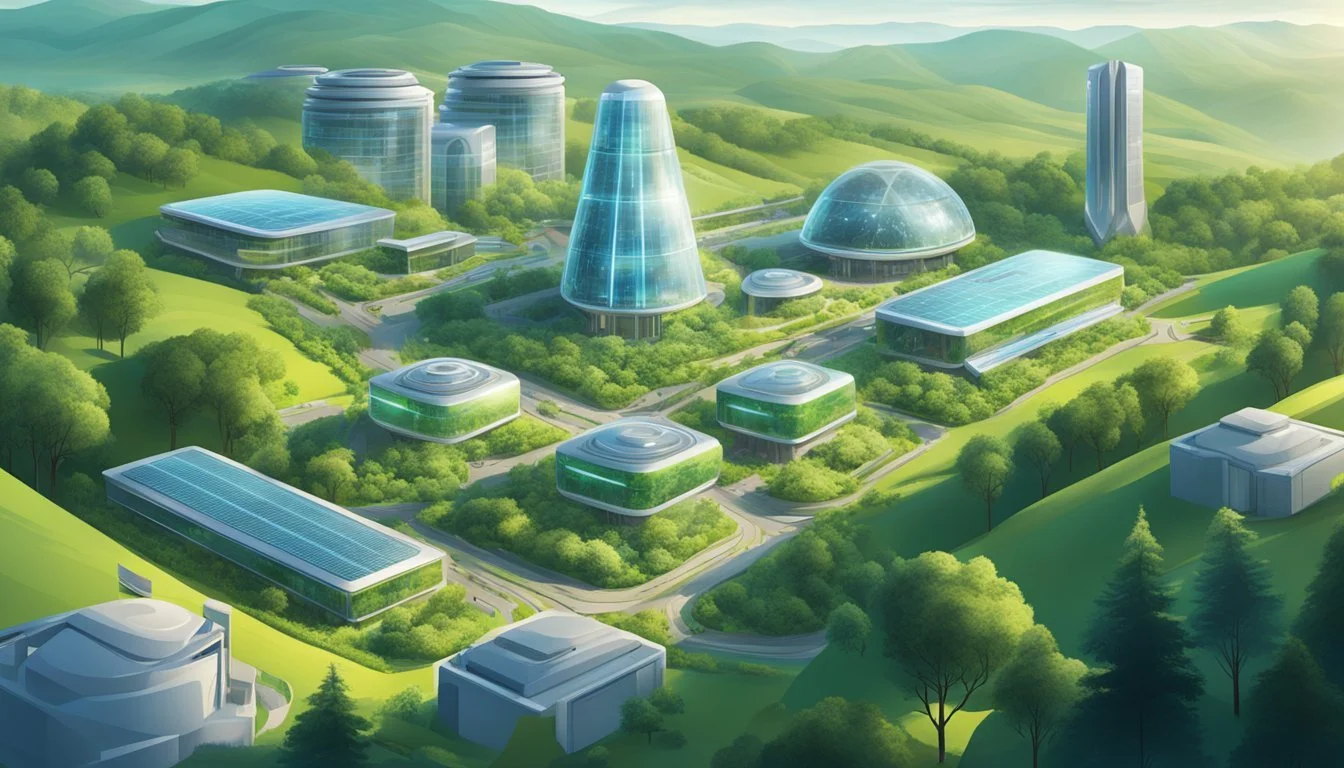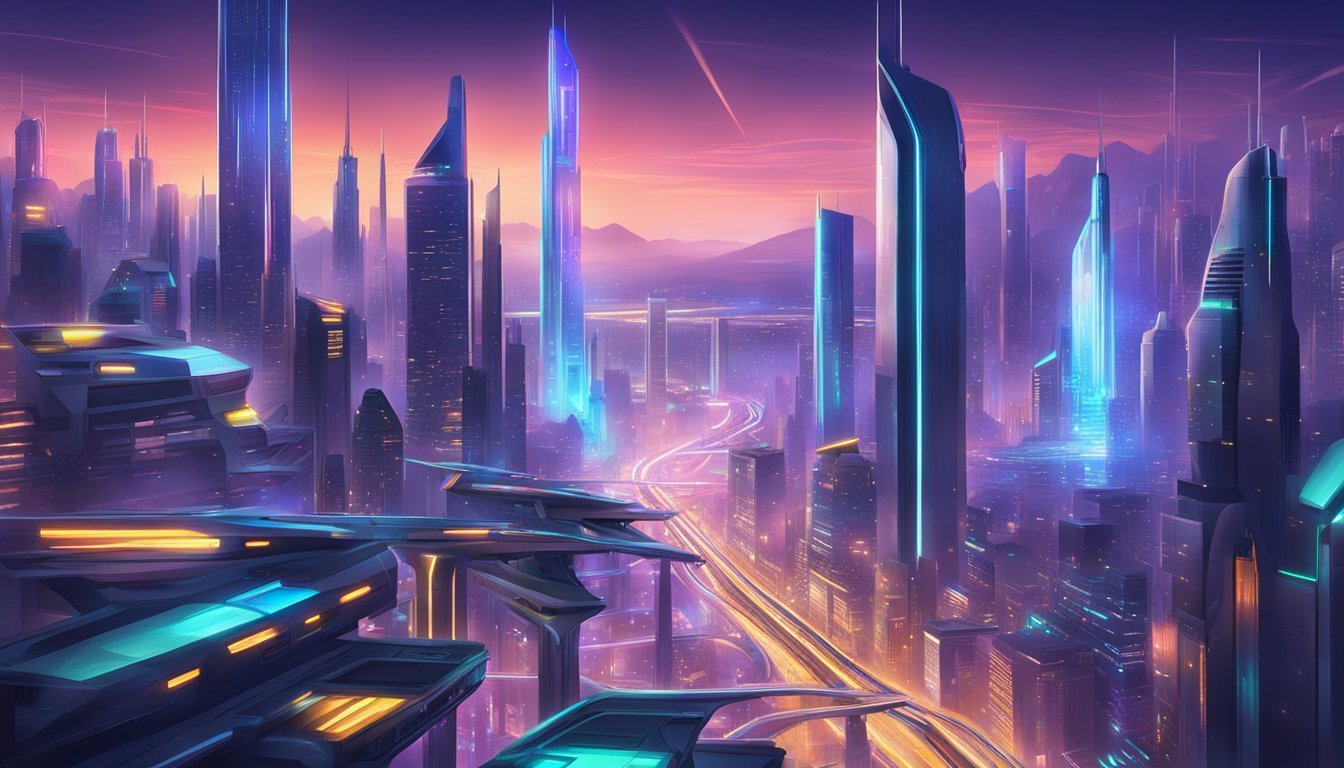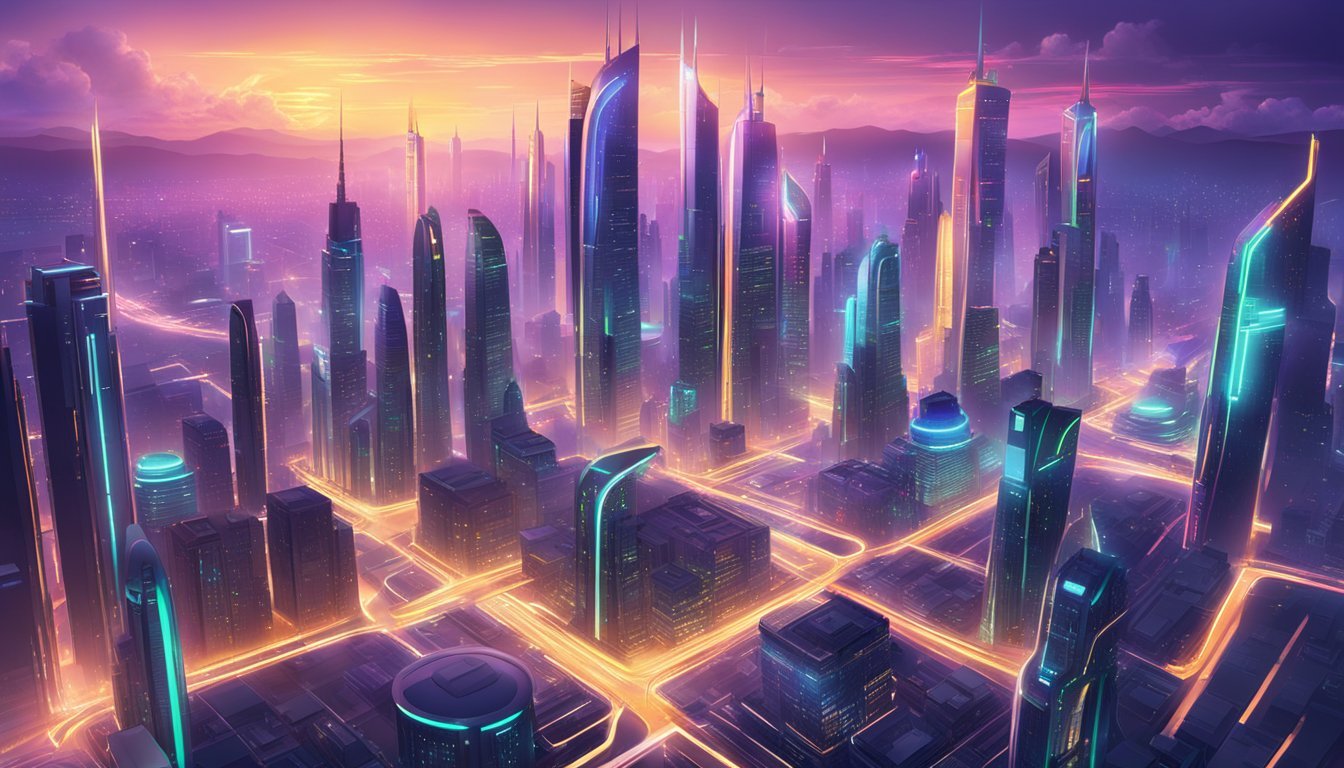Devs: Silicon Valley's Quantum Leap into Determinism Explores Tech's Pursuit of Fate Control
"Devs" throws viewers into a mind-bending exploration of quantum computing and determinism set against the backdrop of Silicon Valley's tech scene. Created by Alex Garland, this FX miniseries blends cutting-edge science with philosophical intrigue.
At its core, "Devs" revolves around a secretive quantum computing project at the fictional tech company Amaya. The show delves into how advanced technology could potentially unlock the ability to predict the future and past with perfect accuracy, challenging our notions of free will.
As the story unfolds, characters grapple with the implications of a deterministic universe where every event is preordained. "Devs" raises profound questions about the nature of reality, consciousness, and the ethical responsibilities of tech companies wielding immense power.
Conceptualizing 'Devs'
'Devs' explores the intersection of quantum computing and determinism in Silicon Valley. This miniseries delves into profound philosophical questions through a sci-fi thriller lens.
Origins and Creation by Alex Garland
Alex Garland, known for his thought-provoking sci-fi works, created 'Devs' as a miniseries for FX on Hulu. The show builds on themes from his previous projects, particularly the exploration of advanced technology and its impact on humanity.
Garland's fascination with quantum mechanics and determinism shaped the core concepts of 'Devs'. He spent extensive time researching these topics to craft a narrative that blends scientific accuracy with philosophical depth.
The series reflects Garland's signature style of visual storytelling and complex character development. His approach combines elements of thriller, drama, and science fiction to create a uniquely atmospheric show.
Overview of the 'Devs' Miniseries
'Devs' unfolds as an eight-episode miniseries set in a cutting-edge tech company. The plot centers around a secretive quantum computing project with far-reaching implications.
The show follows Lily Chan, a software engineer who investigates her boyfriend's mysterious disappearance. Her quest leads her to uncover the true nature of the 'Devs' project and its potential to predict the future.
'Devs' tackles weighty themes such as free will, determinism, and the nature of reality. It presents complex scientific concepts in an accessible manner, weaving them into a gripping narrative.
The series stands out for its stunning visual aesthetics, particularly in its depiction of the quantum computer. This central set piece serves as a visual metaphor for the show's themes.
Central Themes and Philosophies
Devs explores profound questions at the intersection of science, philosophy, and ethics. It grapples with the nature of reality and human agency in a technologically advanced world.
Exploring Determinism and Free Will
The series delves into the concept of determinism, positing a universe where all events are predetermined by prior causes. This idea challenges traditional notions of free will. The quantum computer in Devs appears to predict future events with perfect accuracy, suggesting a fully deterministic reality.
Characters struggle with the implications of this worldview. If all actions are predetermined, does individual choice matter? The show examines how belief in determinism affects personal responsibility and moral decision-making.
Devs also raises questions about causality and time. Can the future influence the past? The quantum computer's abilities blur the lines between past, present, and future, further complicating ideas of free will and determinism.
The Interplay Between Science and Ethics
Devs highlights ethical dilemmas arising from cutting-edge scientific research. The pursuit of knowledge through quantum computing raises serious moral questions. Is it ethical to create technology that could potentially eliminate free will?
The show explores the responsibilities of scientists and tech companies. Characters debate the potential consequences of their work on society and individual freedom. Devs illustrates how scientific advancements can outpace ethical frameworks.
Privacy concerns also feature prominently. The quantum computer's ability to observe any point in time raises issues of surveillance and consent. The series prompts viewers to consider the ethical implications of technologies that could reshape fundamental aspects of human existence.
The Storyline and Main Characters
Devs weaves a tale of quantum computing, determinism, and corporate intrigue in Silicon Valley. The narrative unfolds through the eyes of key characters as they grapple with cutting-edge technology and its far-reaching implications.
Protagonist Lily Chan's Journey
Lily Chan, portrayed by Sonoya Mizuno, is a software engineer at Amaya Corporation. Her world turns upside down when her boyfriend Sergei mysteriously disappears after joining the secretive Devs division. Driven by suspicion and grief, Lily embarks on a dangerous quest for truth.
She uncovers a web of lies and confronts powerful forces within Amaya. Lily's determination and technical skills prove crucial as she delves deeper into the Devs project. Her journey challenges her beliefs about free will and the nature of reality.
Forest's Quest and Ideals
Forest, played by Nick Offerman, is the enigmatic CEO of Amaya Corporation. He leads the Devs project with an unwavering vision rooted in personal tragedy. Forest's obsession with determinism and quantum computing stems from his desire to reconnect with his deceased daughter.
His character embodies the ethical dilemmas of pushing technological boundaries. Forest's ideals clash with the potential consequences of his work. The series explores his complex motivations and the moral implications of his actions.
The Enigmatic Amaya Corporation
Amaya Corporation serves as the backdrop for the unfolding drama. Its advanced quantum computer forms the core of the Devs project. The company's immense resources and secrecy fuel speculation about its true objectives.
Amaya's campus, dominated by a giant statue of Forest's daughter, creates an unsettling atmosphere. The corporation's influence extends beyond Silicon Valley, attracting government attention. Its role in developing potentially world-altering technology raises questions about corporate responsibility and the future of humanity.
Silicon Valley Setting and Its Depiction
Devs portrays a stylized version of Silicon Valley, blending real-world tech culture with futuristic elements. The show's setting captures the essence of the region's innovative spirit while examining its darker undercurrents.
Tech Culture and Environment
Devs paints Silicon Valley as a hub of cutting-edge technology and ambitious visionaries. The series showcases sprawling tech campuses reminiscent of Google or Facebook, complete with modern architecture and lush landscapes.
Employees are depicted as highly skilled and driven, working on groundbreaking projects. The show highlights the competitive nature of the tech industry, with companies vying for talent and striving to create the next big innovation.
San Francisco's iconic skyline and landmarks make appearances, grounding the story in a familiar setting. The contrast between the city's historic charm and the sleek, futuristic tech offices underscores the rapid pace of change in the region.
The Influence of Real Tech Companies
Amaya, the fictional company at the center of Devs, draws inspiration from real-life tech giants. Its expansive campus and secretive research division mirror the perceived mystique surrounding companies like Apple or Google.
The show explores themes of data privacy, ethical concerns in technology development, and the immense power wielded by tech corporations. These issues reflect real-world debates about the influence of Silicon Valley companies on society.
Devs also touches on the cult-like devotion some employees have for their companies and charismatic leaders. This portrayal echoes public perceptions of prominent tech CEOs and their followers in the industry.
Quantum Computing in 'Devs'
'Devs' presents a captivating vision of quantum computing's potential. The show explores how this advanced technology could reshape our understanding of reality and determinism.
Representation of Quantum Technology
The quantum computer in 'Devs' is portrayed as an immensely powerful machine. It can process vast amounts of data to predict past and future events with extraordinary precision. This fictional device extends beyond current quantum computing capabilities.
The show's visual representation of the quantum computer is striking. It features a massive, cube-like structure suspended in a vacuum-sealed chamber. This design emphasizes the machine's complexity and otherworldly nature.
'Devs' explores the theoretical concept of using quantum computing for predictive modeling on a grand scale. While current quantum computers cannot achieve this level of prediction, the show sparks thought about future possibilities.
The Dual Nature of Tech Advancements
'Devs' highlights both the promise and peril of cutting-edge technology. The quantum computer offers unprecedented insights into the nature of reality. It allows characters to observe historical events and potentially glimpse the future.
However, the show also delves into the darker implications of such power. It raises ethical questions about free will and determinism. The technology in 'Devs' blurs the line between observation and manipulation of reality.
The series portrays how advanced quantum computing could impact privacy and personal freedom. It suggests that with enough computing power, individual actions might become predictable and potentially controllable.
Production and Cinematic Techniques
Devs employs striking visuals and immersive sound design to enhance its exploration of quantum computing and determinism. The show's production values create a dreamlike atmosphere that complements its philosophical themes.
Visual Storytelling and Cinematography
Devs uses a distinctive color palette dominated by golden hues and cool blues. This creates a surreal, almost ethereal quality that reflects the show's blend of science and mysticism. The cinematography emphasizes symmetry and geometric patterns, particularly in shots of the Devs facility.
Wide-angle lenses capture the vastness of the redwood forest surrounding Amaya's campus. These shots contrast with tight, claustrophobic interiors that heighten tension. Slow-motion sequences punctuate key moments, giving viewers time to absorb the implications of plot revelations.
The Devs quantum computer is portrayed as a floating golden cube, its design both futuristic and temple-like. This visual metaphor underscores the quasi-religious reverence characters have for the technology.
Audiovisual Elements and Symbolism
The show's soundscape blends electronic and organic elements. Pulsing synths represent the quantum computer's calculations, while string instruments evoke emotional depth. Silence is used strategically to build suspense and highlight pivotal dialogue.
Visual symbols recur throughout the series. The Amaya statue looms over the campus, embodying Forest's obsession with his deceased daughter. Fractal patterns appear in nature and architecture, hinting at the underlying mathematical structure of reality the characters seek to uncover.
Lighting plays a crucial role in setting mood. The Devs lab is bathed in a golden glow, while outdoor scenes often use natural light to create a sense of authenticity. This contrast reinforces the divide between the secretive quantum realm and the everyday world.
Reception and Impact
"Devs" garnered significant attention for its thought-provoking exploration of quantum computing and determinism. The show's unique blend of science fiction and philosophical themes resonated with viewers and critics alike.
Critical Acclaim and Audience Reception
"Devs" received widespread critical acclaim upon its release. Many reviewers praised Alex Garland's distinctive visual style and the show's ambitious narrative. The series earned an 81% approval rating on Rotten Tomatoes, with critics highlighting its atmospheric tension and intellectual depth.
Audiences were captivated by the show's complex themes and stunning cinematography. Some viewers found the pacing slow at times but appreciated the meticulous world-building. The performances of Nick Offerman as tech CEO Forest and Sonoya Mizuno as Lily Chan were particularly well-received.
Influence on Science Fiction and Technology Narratives
"Devs" made a significant impact on science fiction storytelling, pushing the boundaries of how quantum concepts are portrayed in popular media. The show's exploration of determinism and free will sparked discussions among viewers and tech enthusiasts.
Its portrayal of a Silicon Valley quantum computing company influenced subsequent depictions of tech firms in film and television. "Devs" joined Garland's previous works like "Ex Machina" and "Annihilation" in cementing his reputation for crafting cerebral sci-fi that grapples with cutting-edge scientific concepts.
The series also raised public awareness about quantum computing and its potential implications. It prompted conversations about the ethical considerations surrounding advanced technologies and their impact on society.
Cultural and Ethical Implications
Devs explores profound questions about technology's impact on society and human agency. It delves into the ethical dilemmas posed by advanced computing and artificial intelligence in Silicon Valley's corporate landscape.
Representation of Capitalism and Power
Forest, the CEO of Amaya, embodies the tech industry's concentration of wealth and influence. His company's quantum computer gives him godlike power to observe the past and future. This reflects concerns about Big Tech's outsized control over information and privacy.
Forest's obsession with resurrecting his daughter raises ethical questions about using technology to defy natural limits. The show critiques how personal motivations of tech leaders can shape humanity's trajectory.
Devs depicts the cultlike devotion some have toward tech visionaries and their promises. It warns against blind faith in technological solutions to existential problems.
Artificial Intelligence and Its Consequences
The quantum AI system in Devs achieves a level of predictive power that threatens free will. This sparks debates about determinism versus human agency. The show asks if perfect prediction would negate personal choice and responsibility.
Ethical concerns arise around AI's potential to reconstruct past events or forecast the future. Questions of privacy, surveillance, and data ownership come to the forefront.
The series examines AI's impact on human relationships and self-perception. Characters grapple with their sense of purpose and identity in a deterministic universe. This reflects real-world anxieties about AI replacing human roles and decision-making.
Beyond the Screen
Devs' exploration of quantum computing and determinism resonates beyond fiction. The show's themes mirror real technological pursuits and spark debate about the future of computation and its societal impacts.
Real-world Parallels in the Tech Industry
Major tech companies are investing heavily in quantum computing research. Google claimed "quantum supremacy" in 2019, demonstrating a quantum computer's ability to solve a problem faster than classical supercomputers. IBM and Microsoft have also made significant strides in developing quantum technologies.
These advancements raise ethical questions similar to those posed in Devs. Privacy concerns emerge as quantum computers could potentially break current encryption methods. The tech industry grapples with the implications of increasingly powerful AI and data analysis tools.
Some critics draw parallels between Devs' secretive Amaya corporation and real-world tech giants, citing a lack of transparency in advanced research projects.
Future Predictions and Theories
Experts speculate on the potential applications of mature quantum computers. These range from revolutionizing drug discovery to optimizing financial models and enhancing machine learning algorithms.
Theories about the nature of reality and free will, central to Devs' plot, continue to be debated in scientific circles. Some physicists propose that quantum mechanics might play a role in human consciousness, though this remains highly controversial.
The COVID-19 pandemic has accelerated interest in using advanced computing for modeling complex systems and predicting future events. This echoes Devs' themes of determinism and future-viewing technology.
Conspiracy theories about secretive tech projects persist, fueled by the rapid pace of technological advancement and the concentration of power in large tech corporations.








